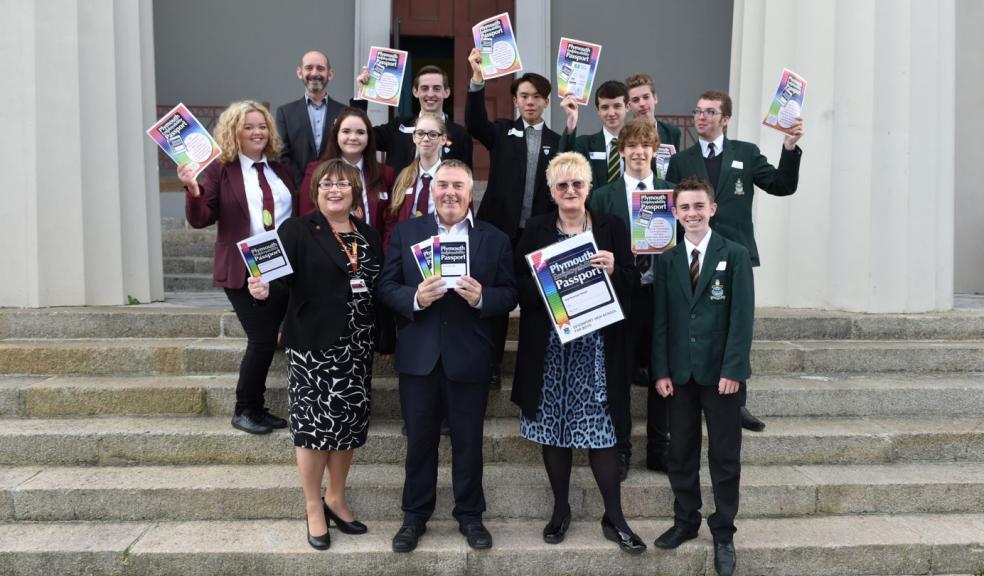
New employability passport will help open up the world of work
A brand new employability passport to help young people with their future careers has been officially launched.
Representatives from Plymouth schools and businesses were at Devonport Guildhall to formally mark the rollout of the Passport after a successful pilot scheme last year involving several schools, led by Devonport High School for Boys and Eggbuckland Community College.
The passports will give employers more information about students other than just qualifications, including attitude, punctuality and communication skills.
The passport, developed by schools working in partnership with Plymouth City Council, is also being embraced by local businesses that recognise its value to provide better opportunities to create smooth transitions into future employment.
It’s intended to embed work skills into the curriculum through real life projects and work placements and greater engagement between businesses and schools. This will demonstrate to prospective employers, or Higher Education providers, the work and employability skills that students have gained.
Leader of Plymouth City Council Tudor Evans said: “It’s really important that our young people not only have good academic qualifications but they are also able to demonstrate some important life skills like organising, managing time and problem solving for potential employers as well.
“Introducing a young people’s skills passport, so that our young people are job ready after leaving school was one of our pledges to the people Plymouth, so I’m really pleased that we are now able to offer our young people more than just academic qualifications in Plymouth.
“The really exciting part of this passport is we are able to link schools with business initiatives such as Building Plymouth and the 1000 Club and that means we can create more opportunities for our young people to work with businesses who can validate their skills”
The passports require the young people to take part in activities both individually and in teams and both inside and outside of school to develop skills such as communication, planning and time management, and to explore the world of work and possible career paths. Successful completion of a passport will provide the student with a record of achievement and as such as will give more information about students than just their exam qualifications, and show prospective employers the work and employability skills that students have gained.
Plymouth's 1000 Club, a network of over 1500 businesses, encourages students to work towards the completion of the passport. Elaine Budd, the 1000 Club Coordinator said: “Plymouth’s local employers and educators have confirmed the need for more young people to be instilled with attitudes and skills that make them ‘job ready’. The 1000 Club was established to support businesses to create more opportunities for young people and this is a very important initiative to ensure that young people are able to compete in a very competitive job market."
The Passport will offer three levels of awards, Bronze, Silver and Gold depending on levels of achievement, with progression between levels. Activities from existing initiatives, such as the Duke of Edinburgh Award, can be considered as evidence for different challenge areas within the Employability Award.
The Careers Education, Information and Guidance Network (CEIAG), who led the development of the Passport, designed the award to help students to not only reach these standards, but to recognise the skills they are developing, and receive recognition for those achievements.
Plymouth and Devon Chamber of Commerce is also behind the passport, Cate Taynton, Operations Manager (Projects) for Plymouth and Devon Chamber of Commerce said: “Developing the skills of the next generation is a key lobbying focus for Plymouth and Devon Chamber and Chambers of Commerce across the country.
“Nurturing the business leaders of tomorrow and preparing young people for the world of work are necessary steps in filling the skills gap. Soft skills like communication, teamwork and enthusiasm are just as important as academic qualifications to employers, and with this in mind the Chamber is pleased to support this new initiative that will support young people in developing these important work place skills.”












